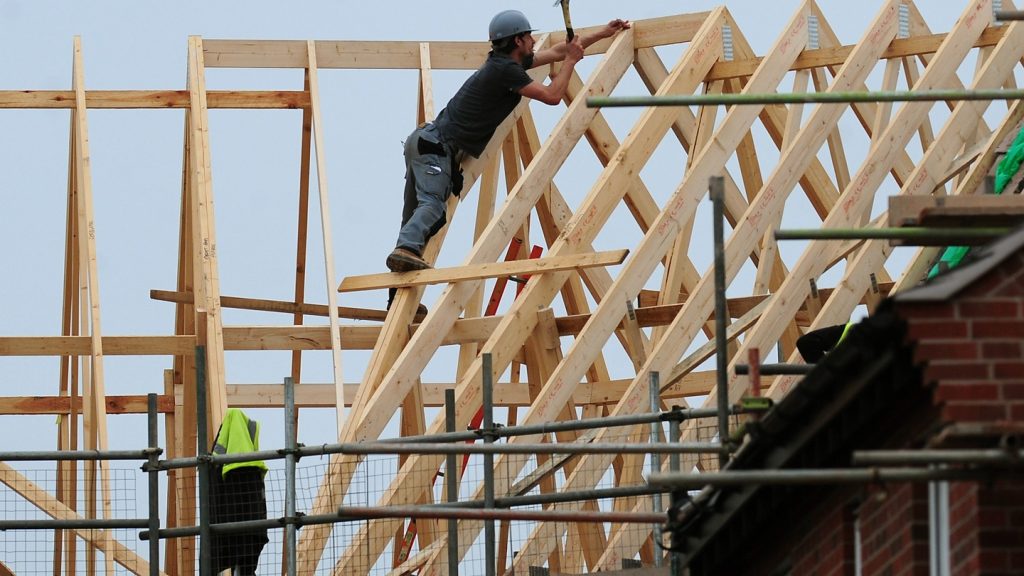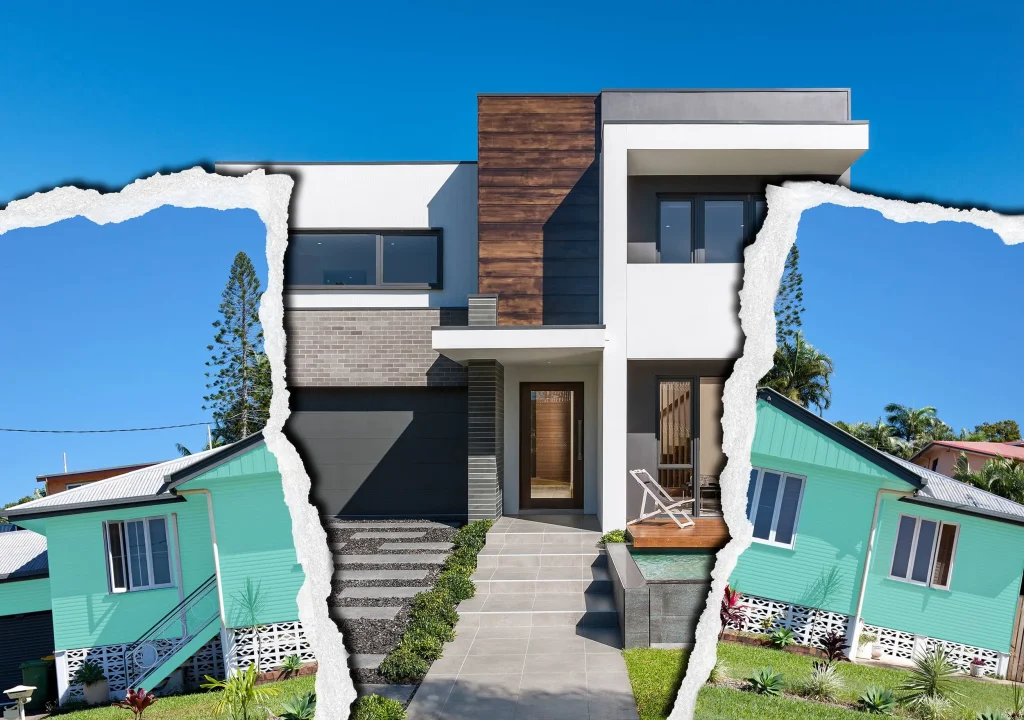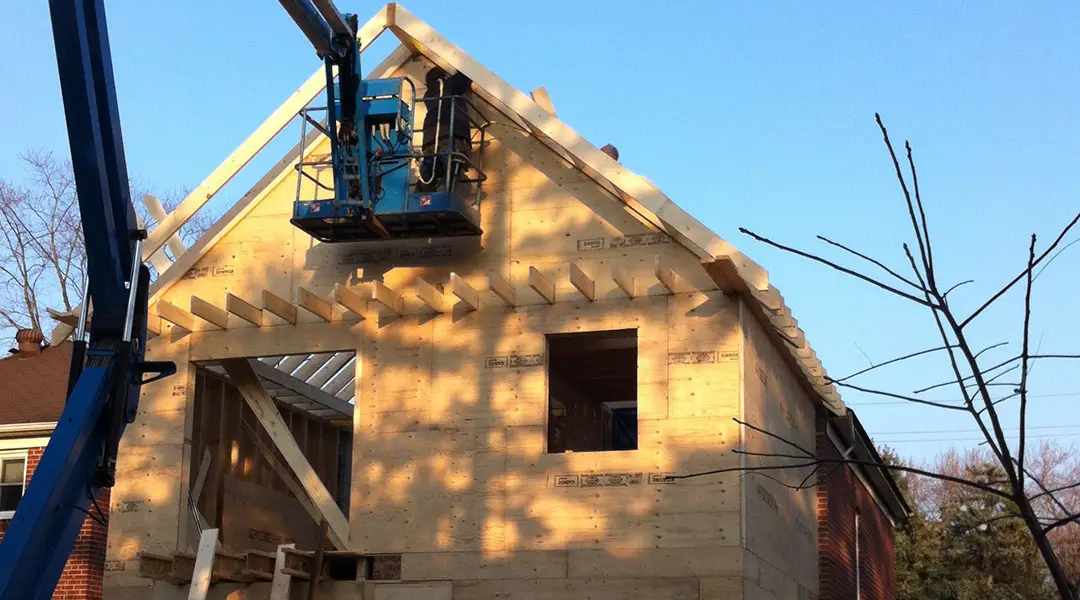If your home is starting to look worn out, simple home improvements may no longer be sufficient. Just like with an aging car, minor fixes can help maintain its functionality, but eventually, a complete overhaul or even a replacement may become necessary.
Similarly, houses can reach a point where constant window repairs, siding fixes, and flooring replacements are no longer enough. At that stage, a complete reconstruction or a significant overall renovation of the entire house might be necessary.
Making the right decision about whether to rebuild or renovate requires thoughtful contemplation. To ensure that you select the best option for your financial situation and requirements, begin by asking yourself some questions. Afterward, carefully examine your goals, the state of your current property, and any relevant regulations in your area that may impact the project.

How long do you plan to live in your current home?
If your plan is to reside in your house for an extended period before selling, from a financial standpoint, it’s typically more advisable to demolish and reconstruct the home.
Every physical component of a house has a lifespan that begins ticking the moment it’s constructed. For instance, the paint on the exterior can last up to seven years, but in harsh weather, it may only last five years. Dishwashers have a lifespan of less than a decade, while central air conditioners and three-tab composite shingles can last up to 10 to 15 years and approximately 20 years, respectively.
Furthermore, while some components’ lifespans are spread out, numerous others expire at approximately the same time. From a financial perspective, changing a dishwasher isn’t an enjoyable task, but envision having to do it in the same year you replaced your roof, gutters, and central air conditioner.
By reconstructing, you essentially restart the timer concerning the physical aspects of the house, including everything from the appliances to the house’s exterior (such as the roof, siding, etc.). When you decide to sell the house after 15 years, you’re essentially selling a 15-year-old house rather than one that’s already 40 years old.
As an added benefit, you get to enjoy living in a brand-new home for those 15 years. Potential buyers are particularly aware of the age of houses, and if they’re not, their real estate agent and home inspector will undoubtedly inform them.
Budget Considerations
If you have a limited budget, undertaking a significant home renovation, while costly, will still be cheaper than completely rebuilding the house.
The option of demolishing and reconstructing is a binary choice. Once you make the initial significant purchase of demolishing the existing structure, you’re left with an empty plot of land, which obligates you to construct a new home.
On the other hand, a home renovation can be executed gradually. You don’t have to complete all the projects at once. You can commence with refurbishing a bathroom and later move on to other areas as your finances and schedule permit. Although spreading out a significant renovation over an extended period may be stressful, it will enable you to spend less money and make payments more manageable.
If you choose the option of a complete house rebuild, you must continue to move forward unless you want to end up with an empty plot of land. Having a partially constructed home can be a problem as any exposed structures are susceptible to rapid aging due to the elements.
If you need help with your construction financing, make sure to find a reliable renovation or construction firm in your area.
Living Arrangements
Undertaking most home renovation projects is feasible while you continue to reside in the house. This can be advantageous in terms of both cost and convenience, particularly if the property is your primary residence. Nevertheless, it’s crucial to keep in mind that your household will be living in a construction area for some time, so safety concerns, especially for children and pets, should be taken into account.
In contrast, a complete teardown and rebuild will necessitate you and your family to find temporary living arrangements during the construction period. If you decide to rebuild, factor in the additional expenses associated with relocating out of your home for several months.

What are The Current Conditions of Your House?
Professional home builders commonly suggest that certain conditions make a rebuild a more favorable option or at least more worthy of consideration.
Here’s a list of conditions that make a tear-down/rebuild a better option:
- More space is required beyond the existing house footprint, which can’t be accommodated through an addition without extensive, expensive remodels.
- The foundation and basic structure of the home are in poor condition and require significant work before any major remodeling can begin.
- High real estate comparables in the area suggest that rebuilt houses are selling for much more than the current value of your home, indicating a potential financial benefit to rebuilding.
Do NOT Neglect Zoning Restrictions
Zoning laws regulate the size, location, and type of buildings on a property and often limit the size of a rebuilt house to the original footprint. This means that in many urban and suburban areas, tearing down a small house to build a larger one may be restricted by local zoning laws. As a result, major house remodels are generally favored over total house rebuilds.
Furthermore, zoning laws may also restrict the height of a new house, limiting it to a one- or two-story structure within the original footprint. Additionally, some zones may not allow rental properties, so building an addition or carriage house for renters may not be permitted by law.

